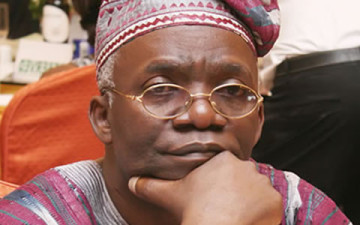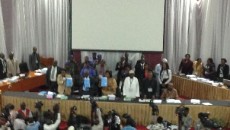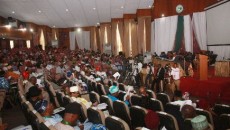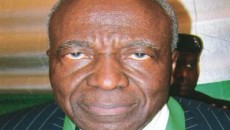1. Section 6(6(d) of the Constitution should be deleted to make Chapter
2 thereof JUSTICIABLE and ENFORCEABLE. In the alternative, socio-economic rights should be set out and enshrined in chapter 4 of the Constitution. The rights of Nigerian citizens to education, adequate health, safe environment, etc have been guaranteed by the African Charter on Human and Peoples Rights Act (Cap A9) the Laws of the Federation of Nigeria, 2004.
2. To ensure equality before the law and enhance access to justice the Public Officers Protection Act and laws which require pre-action notices before institution of suits against certain public institutions should be abolished.
3. To check the growing culture of executive lawlessness and official impunity in the country public interest litigation ought to be encouraged and promoted. To that effect, the anachronistic doctrine of locus standi should be abolished.
4. The Customary court of appeal and Shariah court should be removed from the Constitution as they are state courts. They should be provided in laws enacted by the Houses of Assembly of States.
5. There should be six zones of the Court of Appeal and the Supreme Court to hear and determine appeals from courts in each zone. The divisions of the Appellate Court and the Supreme Court in each zone shall be headed by a Deputy President and Deputy Chief Justice respectively. The Western State once had a Court of Appeal before it was abolished.
6. Appeals arising from matters which originate from the Customary Courts of Appeal, Sharia Courts, Area Courts and Magistrate Courts should terminate at the Court of Appeal.
7. All interlocutory appeals from the High Courts and other courts in each State should terminate at the Court of Appeal. The requirement of leave to file appeals on mixed law and facts should be abolished.
8. Apart from exercising jurisdiction in disputes between the Federal Government and states and between states the jurisdiction of the Supreme Court should be limited to constitutional matters. All Justices of the Supreme Court should form one panel and sit together to determine all constitutional matters.
9. High court judges promoted to the Court of Appeal should be granted fiat to return to the high courts to conclude all part heard cases.(This is the practice in Ghana). Under the Federal High Court Act, Judges who have been transferred from one judicial division to another are granted leave by the Chief Judge of the Court to return to their former divisions to conclude part heard matters.
10. Any party who is affected by the conflicting decisions of the Court of Appeal in the zones should be at liberty to appeal to the Supreme Court.
11. All election petitions should be heard and determined by retired judges to check the unnecessary disruption of the work of regular courts. Appeals arising from such petitions should be heard by retired Justices of the appellate courts.
12. Appeals arising from governorship elections should terminate at the Court of Appeal as was the case from 1999-2011. After all, appeals arising from house of assembly and national assembly elections terminate at the Court of Appeal up till now.
13. Once an election is disputed at an election petition tribunal the burden of proving the validity of such election should be placed on INEC. This is the requirement in cases of arrest and detention where the onus is placed on the detaining authorities to justify their actions in court.
14. Section 285 of the Constitution which prescribes 180 days for hearing of election petitions to exclude the period of appeals. All preliminary objections should be taken together with the substantive petitions while interlocutory appeals should be heard with the main appeals arising from the decisions of the tribunals. Election petitions should be concluded before the inauguration of incoming governments in line with the recommendations of the Justice Mohammed Uwais Electoral Reform Committee.
15. An electoral offences tribunal should be established to try persons who commit electoral offences. In the white paper on the report of the Sheik Ahmed Lemu presidential panel on political violence in Northern Nigeria the federal government has directed that an ad-hoc electoral offences tribunal be set up.
16. There should be an appellate division of the National Industrial Court (NIC) as a one chamber court is not in the interest of justice. Already, there are conflicting decisions of the NIC which have left litigants in confusion.
17. The Federal Judicial Service Commission should be abolished as its role is a duplication of the functions of the NJC. The National Judicial Council should not be involved in the appointment and discipline of judges of state courts. Zonal Judicial Councils should be established to perform functions which are similar to those of the NJC. Serving judges should not be members of the Judicial Councils. They should be constituted by retired judges and lawyers and headed by retired Justices of the Supreme Court. The state judicial commissions and the Nigerian bar association should be fully involved in the appointment and discipline of judges at all levels.
18. The annual vacation and other holidays for courts should be streamlined with the practice in the public service. The colonial practice of closing down all courts for “summer holiday” should stop. Judges should observe one month annual leave and public holidays like other public officers.
19. There should uniform retirement age for all judges in the country. Therefore, like Justices of the Court of Appeal and Supreme Court, judges of the High Courts should retire at 70 years.
20. The concept of plea bargain should be reviewed to ensure that it is applied across board while penalties for offences are clearly set out in the law. On no condition should convicts be sentenced to punishment that is not commensurate with the gravity of the offences committed by them.
21. Since the office of the Attorney-General is required to protect the public interests it should be insulated from executive control. The office of the Attorney-General should be separated from that of the Minister of Justice or Commissioner for Justice. Many countries including the United Kingdom and majority of the Member States of the Economic Community of Western African States (ECOWAS) have separated both offices.
Femi Falana SAN.



